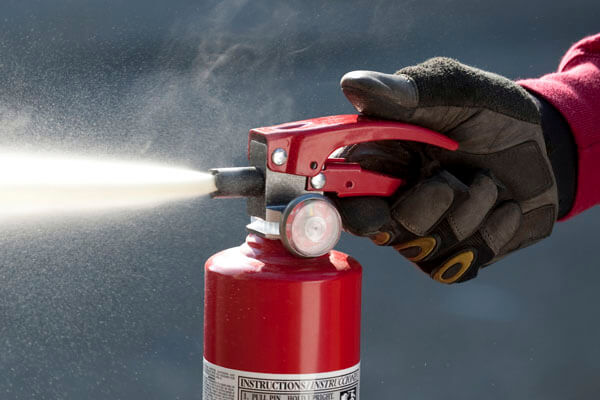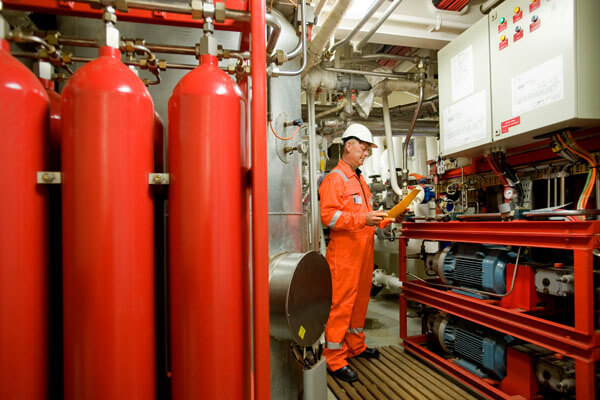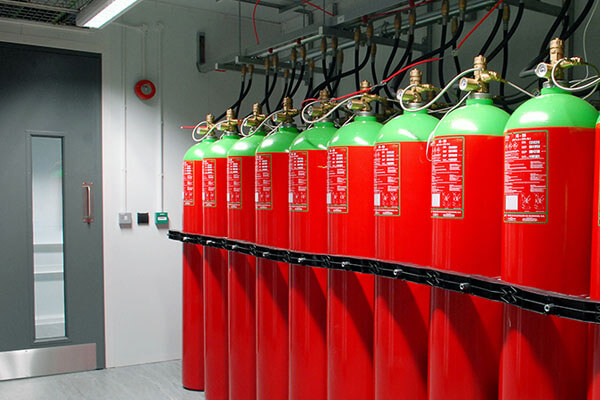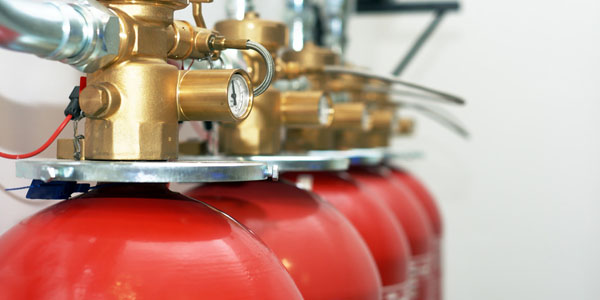ALL YOU HAVE TO KNOW ABOUT FIRE WATCH SERVICES WITH ARTIFICIAL INTELLIGENCE (AI)
In recent years, artificial intelligence (AI) has made significant strides in revolutionizing various industries, from healthcare to transportation. Now, AI is making its mark in the field of fire safety with the emergence of fire watch services enhanced by intelligent algorithms. Combining advanced technologies with human vigilance, AI-powered fire watch services offer a new level of efficiency, accuracy, and proactive response in preventing and mitigating fire hazards.
ADVANTAGES:
• Enhanced Detection and Early Warning Systems: One of the primary advantages of AI in fire watch services is its ability to enhance the detection of potential fire hazards and provide early warning systems. Traditional fire alarm systems rely on smoke detectors and heat sensors, which can sometimes result in false alarms or delayed responses. AI-powered fire watch services employ machine learning algorithms to analyze vast amounts of data from various sources, such as thermal imaging cameras, smoke detectors, and environmental sensors.
By analyzing patterns and anomalies, AI algorithms can identify potential fire risks and trigger immediate alerts to human operators or emergency services. This enables a swift response, allowing for timely evacuation and firefighting measures, ultimately minimizing property damage and enhancing overall safety.
• Real-Time Monitoring and Predictive Analysis: AI also enables real-time monitoring and predictive analysis of fire risks. Through the integration of IoT devices and intelligent sensors, AI algorithms continuously monitor environmental factors, such as temperature, humidity, and air quality, to identify conditions that may increase the likelihood of fire outbreaks. Machine learning models can analyze historical data, weather patterns, and other relevant parameters to predict the probability of fire occurrences in specific areas.
By combining real-time monitoring and predictive analysis, AI-powered fire watch services provide invaluable insights to building owners, facility managers, and fire departments. These insights enable proactive measures such as structural modifications, enhanced fire prevention protocols, and optimized resource allocation to mitigate potential fire risks before they escalate.
• Autonomous Fire Suppression Systems: In addition to detection and monitoring, AI can also play a vital role in autonomous fire suppression systems. When a fire outbreak is detected, AI algorithms can activate automated fire suppression mechanisms, such as sprinkler systems or foam dispensers, to control or extinguish the fire in its early stages. These systems can be configured to respond quickly, precisely targeting the affected area and minimizing collateral damage.
Furthermore, AI algorithms can analyze real-time data from fire suppression systems to optimize their effectiveness. By adjusting parameters such as water pressure, nozzle angles, and foam concentrations, AI can fine-tune the response to varying fire scenarios, ensuring the most efficient use of resources.
• Collaboration between AI and Human Operators: While AI offers a range of capabilities to improve fire safety, it is crucial to highlight the importance of human collaboration in fire watch services. AI algorithms serve as powerful tools to augment human operators rather than replace them. Trained personnel who oversee the AI systems can interpret the information provided, validate potential risks, and make informed decisions based on their expertise.
Human operators working in conjunction with AI-powered fire watch services can respond promptly to alerts, coordinate emergency response efforts, and adapt strategies based on real-time information. The synergy between AI and human intelligence creates a comprehensive and reliable fire safety ecosystem.
CONCLUSION:
The integration of artificial intelligence into fire watch services marks a significant leap forward in fire safety measures. AI’s ability to enhance detection, provide early warnings, enable real-time monitoring and predictive analysis, and support autonomous fire suppression systems contributes to more efficient and proactive fire prevention and response. As AI continues to advance, it is imperative that stakeholders in fire safety recognize its potential and embrace the collaboration between intelligent algorithms and human operators to create safer environments for all.
DO YOU HAVE ANY QUESTIONS ABOUT?
Don’t wait to contact us now by sending an email to info@bio-genesis.it! Our experts are at your complete disposal to guide you in choosing the most suitable product for your fire-fighting needs.





